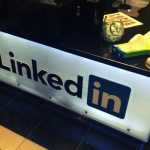When you’re interviewing for an internship, knowing how to put your best foot forward is a key part of getting hired. As CEO of WayUp, I often get asked by students about what they can do to stand out from the crowd. Here are my top four tips for nailing any interview. You can remember them through the acronym, REAF :
1. R: Do your research.
Having a great interview experience begins with doing your research on three things: the company, the position and the person you’re interviewing with. Start by taking a look at the company’s website and social media pages and learning everything you can about the company culture and its mission. To really impress the interviewer, you’ll want to make note of any unique things you find out and mention those during your interview. For example, if you’re interviewing for a marketing role and you find out a cool fact about one of the company’s branding campaigns, be sure to bring this up and to explain why it’s important. This will show the interviewer that you care about the company and that you’re passionate about their work.

Once you have a sense of what the company is all about, it’s time to learn about the role. A great place to start is the job listing. This will give you an overview of the position as well as highlighting key responsibilities. You can also take a look at the company’s career page and make note of any team members who are currently in that position and who may have specific projects listed in their bios.
Last but not least, if you get the interviewer’s name ahead of time (it never hurts to ask!), it’s important to research the person you’ll be meeting with. In addition to reading the person’s bio on the company page, I recommend looking at their Twitter, Instagram or Facebook to learn more about who they are as a person. This is also a good way to identify whether you have anything in common with them which might help you establish a connection during the interview.
Continue reading »









 When searching for work, it is important to remember that employers are evaluating you on all aspects of the job search process. From the application to the interview, you always need to put your best foot forward. New research, however, shows that all too often, job candidates make myriad blunders that damage their chances of finding work.
When searching for work, it is important to remember that employers are evaluating you on all aspects of the job search process. From the application to the interview, you always need to put your best foot forward. New research, however, shows that all too often, job candidates make myriad blunders that damage their chances of finding work.